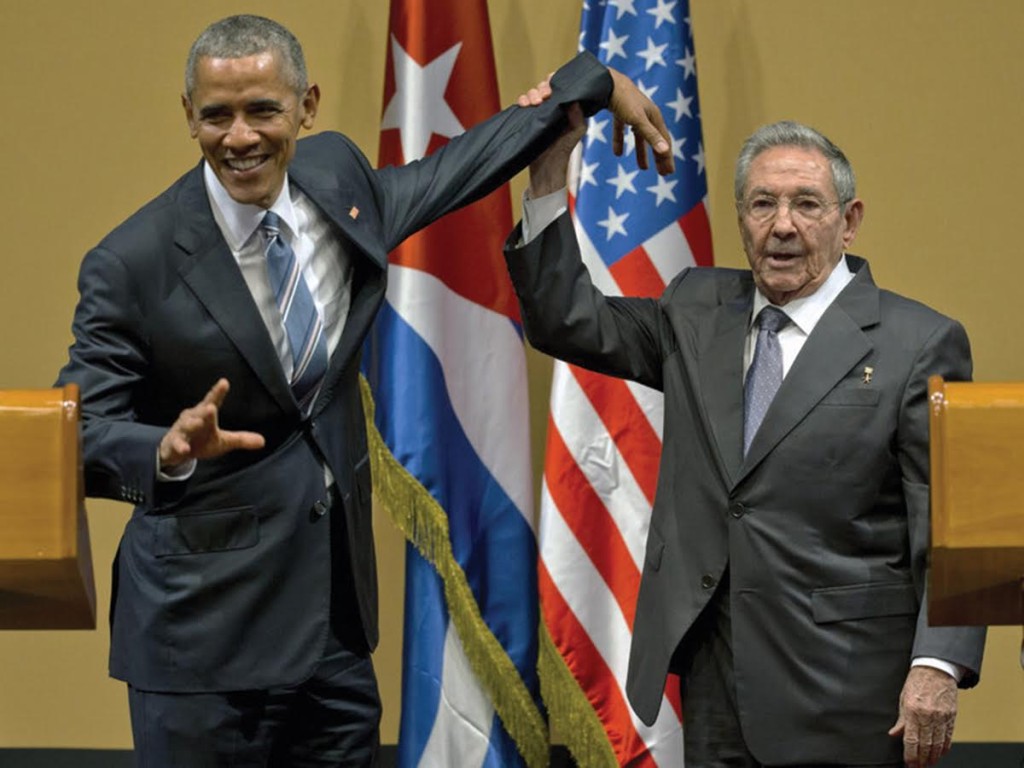
In 1960, the democratic state of Cuba was overtaken by communist radicals and nuclear payloads were delivered from Russia to be based there — just miles away from Florida. There’s a reason we embargoed Cuba, and it was a good one: To combat the threat of nuclear attack. By doing so, the U.S. announced to the world that the communist dictatorship of Cuba was a threat to the balance of peace in the world.
But now we live in a new world, one where the fear of communism has dissolved and where we can firmly say that Cuba can coexist and apply its valuable services and minds for the betterment of mankind. The Cuban embargo continued for 50 more years, despite the end of the Cold War in the ‘80s, but on Wednesday, Oct. 26, it was reported that the U.S. abstained — for the first time in the UN’s 61-year history — on the subject of continuing the Cuban embargo.
When it came down to the vote, National Public Radio reported that only Israel and the U.S. abstained from voting and the remainder of the UN voted to repeal the embargo. By doing this, Cuba is now free to formally trade and communicate with other nations once again. We can all learn from this very moment because we will see a nation, that was once restricted to her own island, either rise to prominence by means of economic boom or fall into disrepair like so many other developing nations.
The U.S. is the most successful country because of its market-based economy. After WWII, many other nations pegged their currency to ours rather than the gold standard because of the dollar’s strength. Leaving Cuba alone to grow and evolve in the modern era would do her well and the repeal of the embargo has given her the chance to do so.
Look at Israel; after its formation following WWII, it has blossomed in the Middle East where other countries have fallen into decay due to war, famine and terrorism. Because Israel was free of international intervention, excluding the wars that have been waged on her borders, she has become a technologically and socially advanced country in her own merits. Shouldn’t we let Cuba have her time to grow and flourish?
Cuba has lived in a time capsule for 50 years. Her citizens drive in well maintenanced cars and use utilities as they had in the ‘60s and for 50 years she and her citizens have done so without the aid of modern communications, smartphones or the internet. Where the U.S. has vastly advanced over the years, Cuba has remained stagnant, but now she has the chance to develop and provide her people the amenities that could vastly ease daily life in the regime.
Cuba could also benefit from U.S. aid. By providing modern-era goods and technology to Cuba, at a price below the market price, the U.S. federal government and other companies like Apple, IBM and Ford could help reignite the Cuban people’s lives by providing modern amenities while also making some money. By lending a helping hand, shaping and directing how the Cuban economy evolves, the U.S. could gain another ally and strong trading partner.
The free market is the only solution to create a growing market. Look how many communist, socialist and other command economies have failed: Russia, the first colonists of America and Vietnam. Now Cuba has a chance to advance into the information era. The U.S. has cleared the way for Cuba to grow once again and it’s all because we chose to abstain and let the natural order take its course.








